 GermanTeam 2006 |
Team Contact: Institutes: |
| Team Profile: | see http://www.germanteam.org/ |
| Research Topics: | see GT2005.pdf, section 1.2 |
| Team Report: | GermanTeam2006tdp.pdf, further publications |
|
|
|
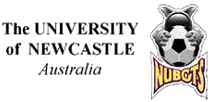 NUbots |
Team Contact: Institutes: |
| Team Profile: | 3rd place at RoboCup 2002, 2003, and 2004, team uses ERS-7 robots |
| Research Topics: |
control, bayesian statistics, machine learning, robot vision, neurocomputing, dimensionality reduction, kernel machines
|
| Team Report: | NUbotFinalReport2006.pdf |
|
|
|
 rUNSWift |
Team Contact: Institutes: |
| Team Profile: |
UNSW has had amazing success in the Legged League of RoboCup since it first participated in the 1999 competition. To date, they have come second twice and first three times! Unusual within the league, rUNSWift has always had a team of final-year undergraduates working on the project as their thesis topic. This creates an extra challenge as each year we have to start with an entirely new batch of students.
See
http://www.cse.unsw.edu.au/~robocup/2005site/history.phtml for more detail. |
| Research Topics: | UNSW has pursued a number of research topics throughout its RoboCup career. The overarching principle is to pursue research where it is needed, rather than concentrating on one particular part of the soccer agent. This has led to research in many areas from locomotion to machine learning to multi-agent co-operation. |
|
|
|
 Jolly Pochie |
Team Contact: Institutes: |
| Team Profile: | see http://www.jollypochie.org/ |
| Research Topics: | Machine learning, machine discovery, data mining, image processing, string processing, software architecture, visualization. |
| Team Report: | JollyPochie2006TR.pdf |
|
|
|
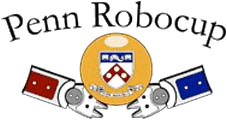 UPENNALIZERS |
Team Contact: Institutes: |
| Team Profile: | 6 years participation, 2nd in ’03 |
| Research Topics: |
Machine learning, biologically inspired sensorimotor processing
|
|
|
|
 UT Austin Villa 2006 |
Team Contact: Institutes: |
| Team Profile: | Our team started as a class project in January of 2003. At RoboCup 2003 in Padua, our goal was just to participate. We lost all of our official games, though were able to win some exhibitions and achieved the fourth highest result in the challenge competition, including the second highest score in the obstacle avoidance challenge. We finished in third place at the 2004 and 2005 US Opens in April, and reached the quarterfinals of RoboCup 2004 and 2005. Also see our team reports (2003, 2004, 2005) for details. |
| Research Topics: |
Machine learning, Multiagent systems, Learned locomotion and ball capturing, Robust vision, color constancy, Automatic sensor-action model callibration
|
|
|
|
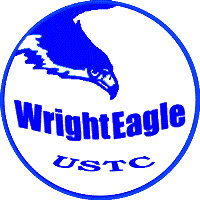 Wright Eagle |
Team Contact: |
| Team Profile: | WrightEagle is the first Chinese team ever participating in RoboCup (2000, simulation) and the first Chinese real-robot team (2001, 4-legged). The team got top 8 both in simulation league (2D competitions from 2001 to 2003 and 3D in 2004) and in 4-legged league (2001-2003). |
| Research Topics: | The team?s major research topics include Multi-Agent Systems, Human-Machine Interaction, and Agent learning. |
| Team Report: | WrightEagle2006.pdf |
|
|
|
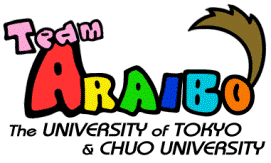 ARAIBO |
Team Contact: Institutes: |
| Team Profile: |
We have participated in Four-legged robot league since 1999.
|
| Research Topics: | |
| Team Report: | ARAIBO_TechnicalReport2006.pdf |
|
|
|
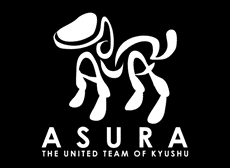 ASURA |
Team Contact: Institutes: |
| Team Profile: |
Our team was organized by KIT(Kyushu Institute of Technology) and FIT(Fukuoka Institute of Technology) in January of 2001. We have been successfully participating in the four-legged league of RoboCup since 2001.
|
| Research Topics: |
Distributed systems, Object oriented programming, Multi-agent systems, and Human-Computer interaction
|
| Team Report: | KyushuUnited2006TechReport.pdf |
|
|
|
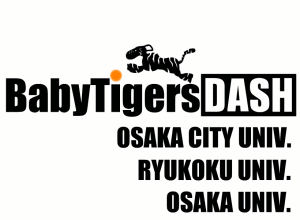 BabyTigers DASH |
Team Contact: Institutes: |
| Team Profile: | Our team was organized by Osaka University and Osaka City University in this competition. We have reconstructed the whole program for ERS-7 based on our past experiences. |
| Research Topics: | Computer Vision, Monte Carlo Localization method, MultiAgent Systems |
|
|
|
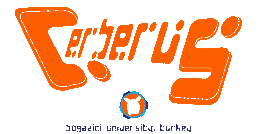 Cerberus |
Team Contact: Institutes: |
| Team Profile: | Team consists of graduate and undergraduate students of BU AILAB. Cerberus participated in Robocup 2001, 2002, 2003 and 2005 and ranked 1st in the Technical Challenges in 2005. |
| Research Topics: | Localization, multi-agent task allocation, path planning and obstacle avoidance, reinforcement learning, POMDP |
| Team Report: | Cerberus06Report.pdf |
|
|
|
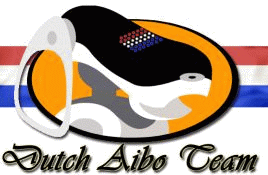 Dutch AIBO Team 2006 |
Team Contact: Institutes: Paul van Rossum Joost Westra and several other institutes (see http://www.dutchaiboteam.nl/robocup/performance/). Before 2004 the Dutch universities have participated and cooperated in other leagues see |
| Research Topics: |
Our main research theme concerns ‘collaborative autonomous intelligent systems’, involving challenges such as vision &movement, shared situation awareness, self-localization, strategic collaboration and human-robot interaction. See for our current work our Team Description Paper:
DAT_2006_TDP.pdf |
| Team Report: | DAT2006TechReport.pdf, further publications |
|
|
|
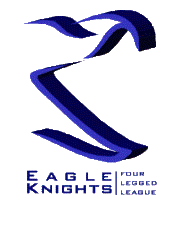 Eagle Knights |
Team Contact: |
| Team Profile: | The Eagle Knights AIBO Team was founded in January 2004. We played our first official games at the US Open 2004. |
| Research Topics: | Biorobotics, Social Cognition, Human Robot Interface |
|
|
|
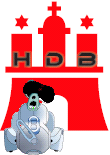 Hamburg Dog Bots |
Team Contact: Institutes: |
| Team Profile: | In 2003 the University of Hamburg, Germany, started a project with the intention to participate in the RoboCup Sony Four-Legged League. Essential part of the project is the integration of solutions of the engineering research from application areas that are part of the Hamburg Institute of Information technology and develop these solutions for further research. The cooperative work of students with different orientations in the information technology is specific for this project and unlike to typical projects with tight focus on a specific topic.
We finished in third place at the 2004 German Open, and reached the quarterfinals of RoboCup? 2004. In 2005 some students of the University of Applied Sciences in Hamburg joined the Hamburg Dog Bots team. The cooperation of the groups implicated new requirements for the team. |
| Research Topics: | Image Processing (Low- and High-level Vision), Image Segmentation, Self-Localization, Behaviour, Teamwork, Tactic, Motion, Neural Networks and Reasoning with Uncertainties |
|
|
|
| Impossibles |
Team Contact: |
| Research Topics: |
Artificial Inteligence and Robotics
|
| Team Report: | impossibles_report_2006.pdf |
|
|
|
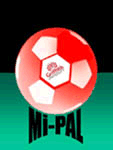 Mi-Pal Team Griffith |
Team Contact: Institutes: |
| Team Profile: | After being formed in late 2002, Mi-Pal has competed in the 2003 and 2004 Robocup competitions in Padova and Lisbon respectively. We have also competed in the Australian Opens of the same period, and remotely at the 2003 German Open.
The team is made up of a broad selection of the Griffith University community. For the 2005 competition we have three undergraduates, one Masters student, three PhD candidates and two Professors actively working on development. |
| Research Topics: | Mi-Pal’s (Machine Intelligence, Pattern Analysis Laboratory) main research focus is related to the Robocup Four Legged League domain. Thus we are interested in Vision Processing, Locomotion, Localisation, Agent Behaviour/co-ordination etc. This year we have also started a project that will use a Non-Monotonic Logic (Plausible Logic) for our Consistency module.
Our research interests extend outside the Robocup sphere and into the homes of people with some form of disability. We are building a system that uses the Aibo’s as a multi modal interface to computing primarily for people with a Vision Impairment. A vision related project that we have had success with is the automatic, real time, three dimensional, tracking of bees as they pollinate Macadamia trees. A grant has recently been approved to investigate robust facial recognition using the Aibo platform. |
|
|
|
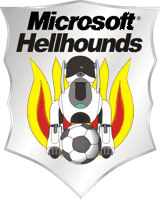 Microsoft Hellhounds |
Team Contact: Institutes: |
| Team Profile: | Microsoft Hellhounds (formerly known as Ruhrpott Hellhounds), while a newcomer at RoboCup 2006, is one of the oldest and most successful teams in the history of the Four-Legged League. The team was founded in the autumn of 2001, as a project group for students of Computer Science. In spring 2002 it took part to its first competition, German Open 2002, and joined the GermanTeam, a joint effort of the Humboldt University of Berlin, the Bremen University, and the Technical University of Darmstadt, to take part in the RoboCup World Championships as a national team. Together with the other members of the GermanTeam, Microsoft Hellhounds won the Technical Challenge competition at RoboCup 2003, and the Soccer Competition in 2004 and 2005. As an individual team, Microsoft Hellhounds won the German Open 2005, RoboGames 2005, US/German Championship 2005 (defeating the winner of the US Open 2005), Dutch Open 2006 and US Open 2006. Due to its large amount of team members, after RoboCup 2005, Microsoft Hellhounds left the GermanTeam with the intent to compete as a new team at RoboCup 2006. |
| Research Topics: | machine learning, evolutionary algorithms, robot vision, sensor modeling and fusion, multiagent systems |
| Team Report: | MSH06TeamReport.pdf |
|
|
|
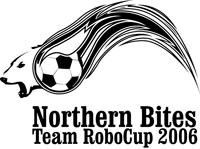 Northern Bites |
|
| Team Profile: | Bowdoin College’s Northern Bites is in its second year overall and in its first year participating in the World Championships. The team is entirely made up of undergraduate students most of whom work on a purely voluntary basis. |
| Research Topics: |
cognitive architecture, coordination, multi-agent systems, machine learning, vision, robocup for education
|
| Team Report: | NorthernBites2006Report.pdf |
|
|
|
 SpelBots |
Team Contact: Institutes: |
| Team Profile: | SpelBots is comprised of six students from Spelman College and two faculty advisors. Spelman College is an outstanding, historically black college for women located in Atlanta, GA. Our participation in RoboCup enables us to promote computer science and robotics research and education among our students and community. |
| Research Topics: | Evolutionary algorithms for robot behavior, multi-agent teamwork, object-oriented programming pedagogy using robotics, and robotics education. |
| Team Report: | SpelBotsTechnicalReport2006.pdf |
|
|
|
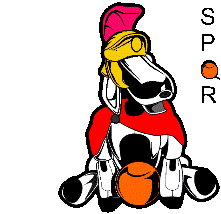 SPQR |
Team Contact: Institutes: |
| Team Profile: | see here |
| Research Topics: | see here |
|
|
|
 TeamChaos |
Team Contact: Institutes: |
| Team Profile: | TeamChaos, formerly Team Sweden, is a multi-university team which has been successfully competing in the four-legged league of RoboCup since 1999. The distributed character of TeamChaos has made the project organization demanding, but has resulted in a rewarding scientific and human cooperation. |
| Research Topics: | Our main scientific focus is the integration of higher level cognitive processes with physical activity in the real world.Some of the distinctive aspects of our approach are: (i) a general, principled architecture for autonomous systems;(ii) hierarchical fuzzy behaviors for fast incremental development of robust behaviors;(iii) fuzzy landmark-based localization for efficient, fault-tolerant self-localization;(iv) an effective cooperative object localization technique (also based on fuzzy logic);and (v) robust vision-based perception, coupled with active perceptual anchoring, for effective object detection. |
|
|
|
 Twaves |
Team Contact: Institutes: |
| Team Profile: | We participated Four-Legged League since 2005. Our team is organaized with Tokai University and Tamagawa University since 2006. Twaves team took 4th place at the 2006 Japan Open. |
| Research Topics: | Visualization, Reinforcement Learning |
|
|
|
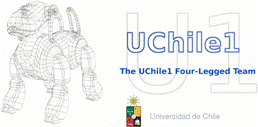 UChile1 |
Team Contact: Institutes: |
| Team Profile: |
Team creation: December 2002.
Former participations: RoboCup 2003, 2004 and RoboCup 2005 Main Achievement: RoboCup-2004 Engineering Challenge Award (paper “UCHILSIM: A Dynamically and Visually Realistic Simulator for the RoboCup Four Legged League” by Zagal&Ruiz-del-Solar) Detailed team profile in
http://www.robocup.cl/four.htm |
| Research Topics: |
Evolutionary robotics, adaptive learning, learning from simulations, and robot pose and gaze direction determination. We have also developed UCHILSIM, a realistic simulator for the four-legged league. Relevant publications in
http://www.robocup.cl/four/publications.htm |
|
|
|
